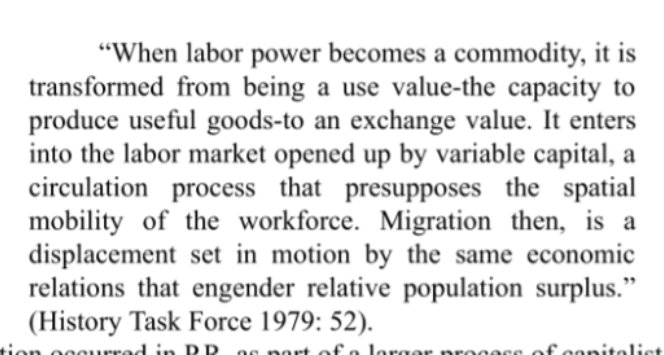this post was submitted on 17 Oct 2023
43 points (100.0% liked)
marxism
3637 readers
1 users here now
For the study of Marxism, and all the tendencies that fall beneath it.
Read Lenin.
Resources below are from r/communism101. Post suggestions for better resources and we'll update them.
Study Guides
- Basic Marxism-Leninism Study Plan
- Debunking Anti-Communism Masterpost
- Beginner's Guide to Marxism (marxists.org)
- A Reading Guide (marx2mao.com) (mirror)
- Topical Study Guide (marxistleninist.wordpress.com)
Explanations
- Kapitalism 101 on political economy
- Marxist Philosophy understanding DiaMat
- Reading Marx's Capital with David Harvey
Libraries
- Marxists.org largest Marxist library
- Red Stars Publishers Library specialized on Marxist-Leninist literature. Book titles are links to free PDF copies
- Marx2Mao.com another popular library (mirror)
- BannedThought.net collection of revolutionary publications
- The Collected Works of Marx and Engels torrentable file of all known writings of Marx and Engels
- The Prolewiki library a collection of revolutionary publications
- Comrades Library has a small but growing collection of rare sovietology books
Bookstores
Book PDFs
founded 4 years ago
MODERATORS
you are viewing a single comment's thread
view the rest of the comments
view the rest of the comments

Oh also it's possible that I missed that it's the last sentence you're wondering about.
With migration, they're talking about the mobility of labor. That the social relations of capitalism induces movement. They're describing a real observed phenomenon at the time, a move to factories and a movement between regions to find work. The question is, why do they do that? The commodification of labor means that it is worth less over time, that it can be slotted into your business processes with less training, that you can replace your workers more easily. On the other hand, workers must be employed to survive. They are landless. They have no farms. They are not apprentices.
Therefore, the desperation of the working class induces them to move to where they can find employment and employers can leverage labor commodification to get workers to move to their place of business. This mobility represents a coercive relationship between employer and worker established by capital relations and, in particular, labor commodification.
Relative surplus population refers to the reserve army, the people desperate for work.